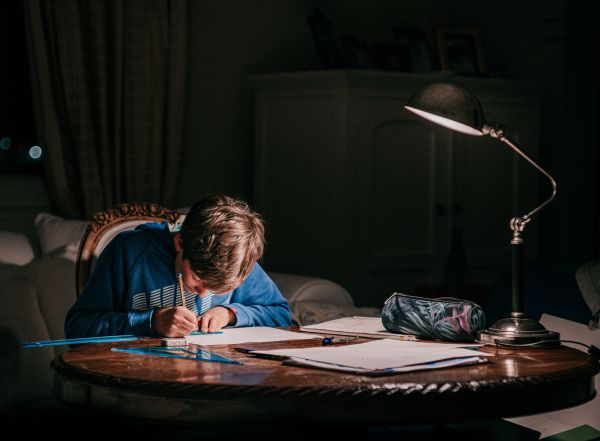
I’ve never had great penmanship, but one day in grade four it went from atrocious to merely eccentric after receiving a single piece of advice from my father.
I had already received frequent advice on the matter from my teachers. Pay attention to what you’re doing. Don’t get frustrated, just make each one a little better. Practice, practice, practice.
My dad’s advice was much more specific: try to make the bottom of each letter touch the blue line.
This made for an immediate improvement, because it made it clear what to do differently—get the loop of the “b” and the trunk of the “t” to meet the cyan lines, rather than float somewhere above them.
The advice of my teachers was still valid, despite being all clichés. You probably can get good at almost anything by doing it repeatedly and paying close attention, while trying to improve on each repetition. That’s probably how Larry Bird got good at basketball.
In fact, some of the best advice comes in the form of clichés. Be yourself. Seize the day. Fake it till you make it. Despite how trite these phrases sound now, they are still deep, paradigm-shifting insights about being human. They’ve undoubtedly changed countless lives, which is how they became trite. Precisely because these principles have been discovered and expressed many times, in many contexts, they’ve become too general and too familiar to revolutionize how someone does something.
Read More
 I'm David, and Raptitude is a blog about getting better at being human -- things we can do to improve our lives today.
I'm David, and Raptitude is a blog about getting better at being human -- things we can do to improve our lives today.
I highly recommend a consistent, daily meditation practice! For years I was interested in meditation, but never did much more than read a lot about it, and think a lot about it... but that doesn't hold a candle to actually sitting and meditating every day. I find it helpful to keep...